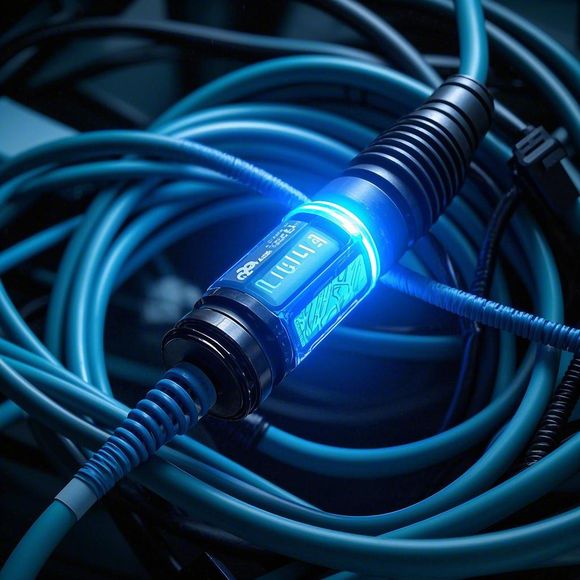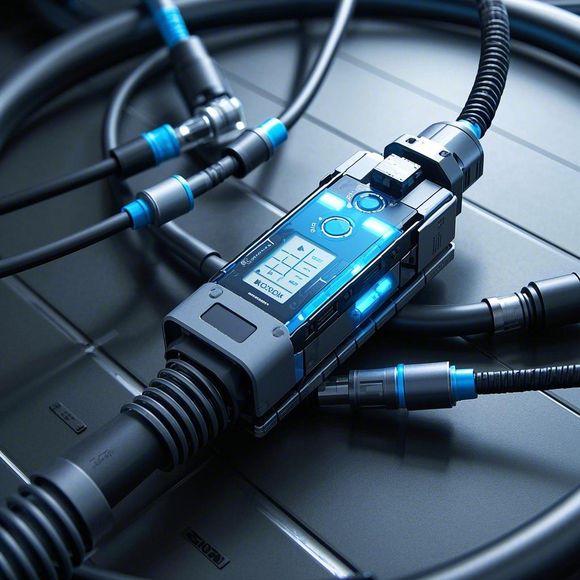Whats Included in a Security System for Your Home or Business?
When you're looking to protect your home or business, a security system can give you peace of mind. But what exactly does a security system include? Here's a breakdown of the components you might find in a typical security setup:1. **Alarm System**: This is the heart of the security system. It consists of sensors and detectors that trigger an alarm when they detect unauthorized entry, motion, or other disturbances.2. **Motion Sensors**: These devices detect movement within a defined area and can trigger the alarm system. They're often placed in strategic locations like hallways, rooms, and entrances.3. **Door and Window Sensors**: These sensors are placed on doors and windows and can detect when they are opened without disarming the system.4. **Glass Break Sensors**: These sensors can detect the sound of breaking glass and trigger an alarm. They're useful for protecting against forced entry through windows.5. **Cameras**: Security cameras can provide visual surveillance of your property. They can be monitored in real-time or record footage for later review.6. **Video Doorbell**: A video doorbell combines a camera with an intercom system, allowing you to see and speak with visitors at your door, even if you're not at home.7. **Access Control**: This feature restricts access to certain areas by using key cards, codes, or biometric scans. It's often used in businesses to control entry into sensitive areas.8. **Smart Home Integration**: Many modern security systems can integrate with other smart home devices, allowing you to control your security system remotely and automate certain functions.9. **Monitoring Service**: With a monitoring service, a professional security company will monitor your system around the clock. They can dispatch emergency services if an alarm is triggered.10. **Backup Power**: A security system needs to work even if the power goes out. Backup batteries or generators ensure that your system remains operational during a power outage.11. **Fire and Carbon Monoxide Detection**: Some security systems include sensors that can detect fires or high levels of carbon monoxide, alerting you to potential dangers.12. **Environmental Monitoring**: This feature can monitor for things like water leaks or extreme temperatures, which could be signs of a more serious problem.When choosing a security system, it's important to consider your specific needs and the size of the area you want to protect. A comprehensive system will typically include a combination of these components to provide all-around protection for your home or business.
Content:
Hey there! If you're looking to beef up your home or business security, you might be wondering what exactly a security system entails. Well, let's dive in and break it down in a way that's easy to understand, like we're just having a chat over coffee.
First off, let's talk about the basics. A security system is like a team of protectors, and it's made up of several key players. Imagine it as a superhero squad, each member with their own special powers to keep you safe.
1、Surveillance Cameras: These are like the eyes of the security system. They watch over your property, both inside and out, and can capture any suspicious activity. Some cameras even have night vision or motion detection, so they're like superheroes that can see in the dark or sense when something's off.

2、Alarm System: This is the loud and proud member of the team. It's designed to make a racket if it senses an intruder, like a superhero with a really loud voice that can't be ignored. There are different types of alarms, like those that go off when a door or window is opened, or when the system's sensors are triggered.
3、Access Control: This is like the bouncer of the security world. It manages who can come and go, ensuring that only authorized people can enter certain areas. This can include keyless entry systems, biometric scanners, or even old-school keys and locks, but with a more secure twist.
4、Motion Sensors: These are the stealthy members of the team. They're usually placed in strategic locations and can detect any movement, triggering an alarm or notifying you of potential threats. It's like having a superhero with super-sensitive hearing and sight.
5、Smart Home Integration: This is where things get really high-tech. Some security systems can integrate with your smart home devices, allowing you to control your security from your phone or even with voice commands. It's like having a team of superheroes that can be summoned with a simple "Hey, Google" or "Alexa."
6、Monitored Security: This is like having a superhero sidekick on call 24/7. With monitored security, a professional monitoring service is watching over your system. If an alarm is triggered, they'll spring into action, contacting you and the authorities if necessary.
7、Backup Power: Just like superheroes have backup plans, a good security system has backup power. This ensures that even if the electricity goes out, your system stays online and ready to protect.
8、Fire and Carbon Monoxide Detection: Some security systems can do more than just protect against intruders. They can also detect fires and carbon monoxide leaks, giving you and your family time to evacuate safely.
When you're shopping for a security system, it's important to consider all these components and how they fit your specific needs. Whether you're looking to protect a small apartment or a large commercial building, there's a security system out there that's tailor-made for you.
Remember, a security system isn't just about deterring criminals; it's also about peace of mind. Knowing that your home or business is well-protected can give you the freedom to go about your life without worry. So, take the time to assess your security needs and find the right team of superheroes, er, security system for you.
Content expansion reading:
"The Ultimate Guide to Understanding and Implementing Security Systems for Your Business"
Introduction:
Welcome to the world of security systems. In today's ever-evolving landscape of globalization, businesses are under increased scrutiny for their level of protection. A robust and reliable security infrastructure is not just a luxury but a necessity for maintaining the safety and integrity of your assets. In this guide, we will delve into the various aspects that make up an effective security system, including hardware, software, network, and personnel measures. We will also touch on some common misconceptions surrounding these systems and how they can be addressed. So, without further ado, let's embark on this journey to ensure the protection of your business and its stakeholders.
Hardware Security:
At the heart of any security system lies its hardware components. These include access control systems, surveillance cameras, motion sensors, and alarms. Let us start with the most basic yet critical component – access control systems. They consist of physical barriers like doors, gates, fences, and other barriers that restrict unauthorized entry. The right choice of materials and design of these barriers can make all the difference in deterring potential threats.
Next, surveillance cameras play an essential role in providing real-time monitoring of areas within your premises. They can be mounted at strategic locations or placed on vehicles for added coverage. Motion sensors, on the other hand, are designed to detect any movement within the monitored area and trigger an alarm. This technology has become increasingly sophisticated, allowing for high definition footage recording and analysis.

Alarms, on the other hand, serve as a last line of defense against potential breaches. They can be manual or automatic, depending on your preference and the type of threat you are trying to protect against. Some alarms are even integrated with other security systems, such as fire alarms, to form a comprehensive security framework.
Software Security:
In addition to hardware components, software plays a crucial role in ensuring the smooth operation of security systems. This includes video surveillance software, which enables users to view live footage from cameras remotely and analyze it for any suspicious activities. It can also store footage for future reference and allow for automated analysis of patterns that may indicate a potential threat.
Intrusion detection systems (IDS) use advanced algorithms to analyze network traffic and identify any attempts by unauthorized users to gain access to your network. These systems are often connected to firewalls or anti-virus software to complement each other's functions and provide a more robust defense against cyber threats.
Network Security:
Network security is another crucial aspect of any security system. This includes firewalls, anti-malware software, and encryption protocols that help safeguard your data from unauthorized access, interception, or tampering. Firewalls act as a barrier between your internal network and the internet, preventing unauthorized access while allowing authorized users to access resources on your network. Anti-malware software monitors for malicious programs or viruses that may attempt to infect your computer or network. Encryption protocols, such as SSL/TLS, ensure that data transmitted over the internet is encrypted to prevent unauthorized access or interception.
Personnel Security:
Last but not least, personnel security is vital in ensuring the success of any security system. This includes training employees on proper security procedures and protocols, conducting regular security drills, and implementing access controls to limit who can enter sensitive areas. Additionally, it is important to maintain good relationships with local law enforcement agencies, as they can provide valuable support and assistance in case of an incident.
Common Misconceptions about Security Systems:
One of the most common misconceptions people have about security systems is that they come with a one-size-fits-all solution. While there are certain standard features available in many security systems, it's important to understand that each business requires unique security solutions that cater to its unique needs and risks. For example, a retail store might require a different approach than a government agency or a medical facility. Similarly, businesses with high-value assets may require more advanced security measures than those with lower-risk assets.
Another common misconception is that security systems only work when they're turned on. However, many security devices are actually designed to be programmable, allowing them to be activated and deactivated remotely. This means that businesses can adjust their security settings based on specific needs or events without having to physically check or reset the systems.
Lastly, some individuals believe that investing heavily in security equipment is a waste of money. However, research shows that well-maintained security systems can save businesses significant amounts of money in the long run. By identifying and addressing potential security vulnerabilities early on, businesses can minimize losses due to theft, damage, or other security-related incidents.
Wrapping Up:
In conclusion, a comprehensive security system is critical for protecting your business from various forms of threats. From hardware components to software tools, network security measures, and personnel security protocols, every aspect must be taken seriously. While there are certain standard features available in most security systems, businesses should tailor their solutions to suit their unique needs. Additionally, it's important to educate employees on proper security practices and protocols to create a culture of compliance. By taking these steps, you can ensure that your business remains safe from potential threats and continues to thrive in an ever-changing landscape.
Articles related to the knowledge points of this article:
Is There Electricity in Communication Cable?
Hya53 Communication Cable: An Overview of Its Features and Applications
Title: The Impact of Tariff on Sales of Fire-Resistant Communication Cables Used in Mining Industry
Title: The Evolution of Communication: From Cables to Wireless Technology
Title: A Comprehensive Comparison of Various Communication Cable Types
Title: Exploring the Top Indoor Communication Cable Brands in Guangdong, China